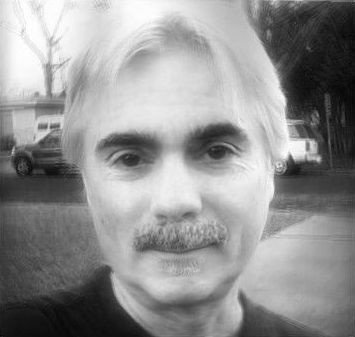Coming to terms with an absence of elders
by Rick Belden
I’ve been thinking recently about the deficiency of appropriate, effective male mentoring in my life and how it’s affected me. I’m 52 and it’s still affecting me, just as it’s affected me at every stage of my life. There’s a huge hole in my life where my father should have been (and still should be), but as big as that hole is, it’s merely the center of a much larger hole, the product of a male culture that is woefully inadequate to meet the true needs of men and boys.
I’ve managed, during the course of my life, to get some of the mentoring I needed from older males in bits and pieces, here and there. I had two or three good male teachers in grade school and high school. There were uncles who helped me out at a few very critical points during my childhood and teen years. My father and his father taught me about building and fixing things and going to work every day. That was better than nothing. But there’s a lot more to being a man than that.
The majority of the mentoring I’ve received in my life came from an older male therapist I saw for several years who helped me learn to work with my dreams. I suppose I could say that I’ve also received some virtual mentoring from older males, mostly authors and musicians, whose work I’ve followed, appreciated, and admired without ever meeting them in person, and whose examples have inspired, taught, or initiated me in some fashion. Robert Bly spoke about this sort of mentoring in absentia (in his case it was Yeats) in the Gathering of Men program with Bill Moyers twenty years ago.
Of course, mentoring for hire and virtual mentoring are not the same, not by a long shot, as what I needed and ideally would have received from a community of elder men who knew me, cared about me, encouraged my development, and spent time with me in person on a regular basis.
I don’t know how that experience can be replaced or recovered once those men are gone, if they were ever there. I think several generations of men are trying to figure that out right now. I also think that a recognition of what we needed and didn’t get, and a coming to terms with the powerful feelings of anger, grief, loneliness, disorientation, and disappointment that may accompany that awareness, is a good place to start.
I’ve come to feel that part of that process of healing and restoration, at least for me, has to do with finding ways to give younger males whatever mentoring, encouragement, and assistance I can. I’ve recently begun to realize that, in spite of the fact that I still feel incomplete, confused, and inadequate at age 52, I actually have something of value to offer younger men, and furthermore, that they see me as having something of value to offer them.
This came as a bit of a shock to me at first, but as I’ve begun to realize the truth of it and operate more out of that place, I’ve also begun to see that offering younger men what I did not receive myself, as contradictory as it may sound, is another way for me to address that hole in myself that I referenced above.
The generation of men that preceded mine failed me and the men of my generation in many ways, as they themselves were failed by the generation that preceded them, and so on back through the decades. Maybe those of us who have felt those failures so acutely, and suffered for them as a result, can find some ways to bridge the gap between the men who preceded us and those who follow, and thereby receive some portion of what we were not given by giving it to others.


